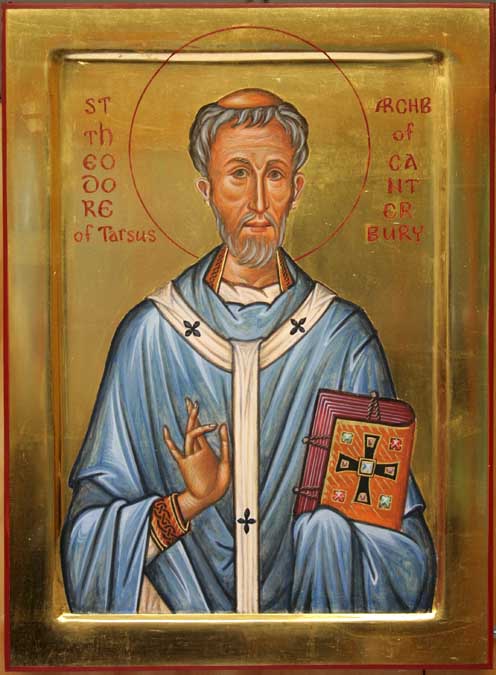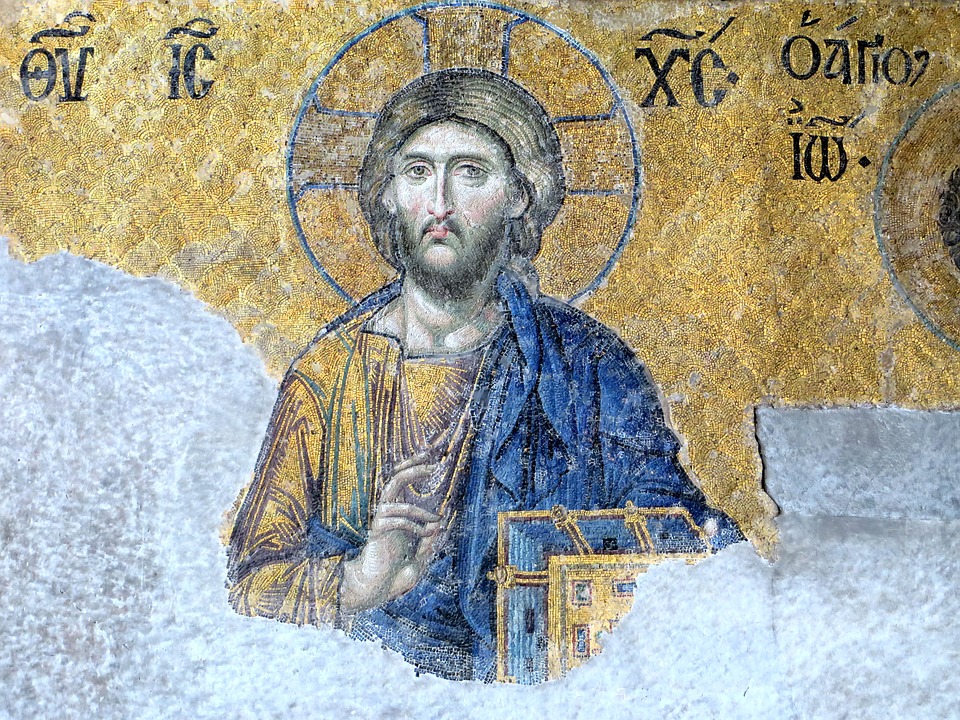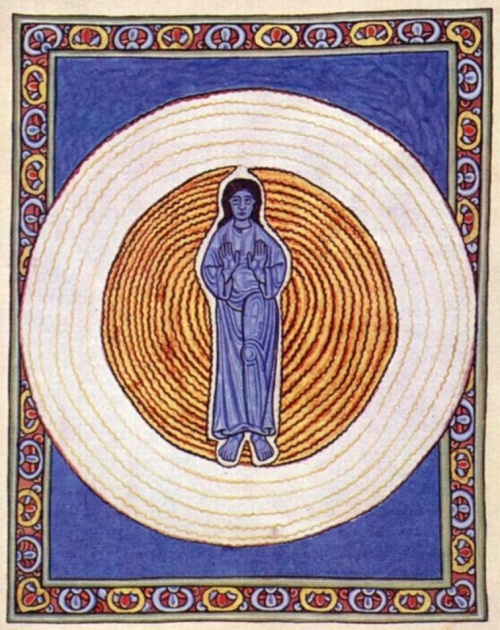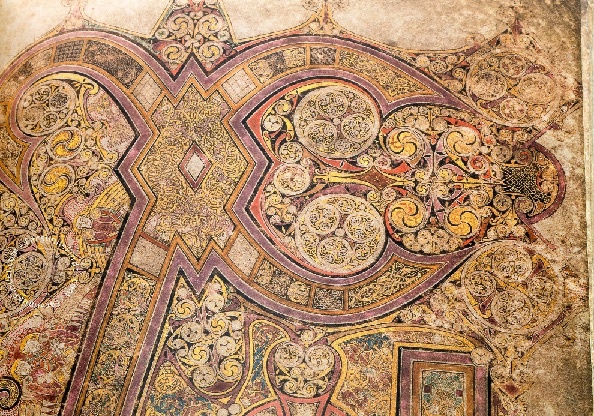Proper 16
14th Sunday of Pentecost
August 26th, 2018
Joshua 24:1-2a, 14-18
Psalm 34:15-22
Ephesians6:10-20
John 6:59-69
Click here to access these readings
There’s a book I’ve always loved called Sirens of Titan, by an author named Kurt Vonnegut. Now, Vonnegut writes a lot of satire, and I read the book back in high school when I was all nice and innocent, so maybe I missed the point, but, I’ve always thought Sirens of Titan to be a really beautiful book. It’s a good old sci-fi story, about space travel and different worlds, but at the center are these two characters, a man and a woman. And at the beginning of the book, they’re told that they will fall in love with one another. And they are disgusted with the idea. One of them is this rough and tumble kind of guy, and the other is a woman of high society. They couldn’t be more different, they know their differences, and they can’t fathom that they would ever love each other.
But, you know, something changes throughout the story. Something changes – slowly -about these two characters. They go through a lot as they’re traveling to different worlds. They encounter different creatures and fantastic sights that are more than they could have ever imagined. And these sights, these experiences chip away at them, dig into them, and change them. Not all at once, but ever so slowly, so that when the two finally meet again at the end, they do fall in love. It’s not an epic love, not some great romantic love with sweeping music like in Hollywood. But it’s a gentle, steady, even love, a sort of love that you, or at least I, could believe in.
Now, we don’t hear much about this sort of love in our gospel reading this morning – at least, not yet. First we hear of its opposite.. One of my commentary books says that this is a pretty anticlimactic ending to all this talk of bread and blood and life – but I think it’s more of a tragedy. Now, this is one of the central moments of John’s gospel. Here, Jesus reveals something very important about himself, that he is that bread that came down from heaven. He reveals that he is the bread of life, that his flesh and blood are the salvation of the world. This is a revelation much like the transfiguration, where we see God’s glory and God’s hope for this world shining through the cracks, when we can catch a glimpse of God’s love and joy.
And we Christians, two thousand years after it happened, love this scene. We read it and think of Christ’s presence in our lives. We hear it, and we think of how Christ enriches us, nurtures us, saves us, when all is darkness. We hear in these readings a hint of the Eucharist, the center of our worship here every Sunday, that great feast to which we are called and which is a foretaste of the heavenly banquet.
But not folks in Jesus’s day. When they heard it, they shook their heads and said, “This teaching is difficult; who can accept it?” They heard this message that fills us with hope, and they turn back and no longer went about with him.” And this isn’t because they were confused, or stumped, or that this teaching wasn’t really for them. They didn’t come to this difficult teaching as we might come to learning Biblical Greek, or hiking the Comida de Santiago, things that might take a great deal of effort but which we know we can accomplish with a bit of willpower and prayer. No, these disciples turn back and no longer went along with him. This is it for them. They’re through.
We should not, perhaps, be too hard on these men and women. Folks of Jesus’s day might have been taken aback with the idea of eating human flesh and drinking blood. And we should be, too, in a way. There’s a certain audacity to Jesus’s words here. He’s trying to break down people’s assumptions, and he’s trying to get inside their hearts, which always takes a bit of pushing – and some people just don’t like that. They think he’s messing with tradition too much, messing with the Law, when what Jesus is really trying to do is show them the beating heart of that same tradition and that same Law. And, in the end, they see Jesus as just another wandering teacher, just another human being, not the Son of God. Who is he, they wonder, to make such fantastic claims? And so they hear this teaching, and turn back.
In the gospels, Jesus faces some rather dark times. After his baptism, he is driven out into the wilderness to be tempted by the devil. In the garden of Gethsemane, he falls to the ground and prays, “Lord, take this cup from me; but not my will, but yours.” That’s a tough prayer. And, of course, there is his trial, the road to Calvary, and the bloody crucifixion. Jesus was no stranger to darkness.
And here we find him in similar darkness: that moment when he reveals part of his being is the moment, and the reason, that Jesus is abandoned. He’s left alone because of who he is. And when the dust settles, and the twelve disciples are all that’s left, you can almost hear the pain in his voice when he asks, “Do you also wish to go away?”
And Peter’s response to Jesus is important, for it shows in him a great love. He says, “Lord, we have come to believe and know that you are the Holy One of God.” Now these short few words – “come to believe” – they are important here. There’s a story to those words; there’s a history to them. There are hard, long days beneath the sun in those words, and there are long nights awake struggling with Jesus’s words, his ministry, and with his very being. Peter’s words aren’t from someone with just some passing understanding of Jesus, but from someone who has walked continually with Jesus, day in and day out, whose ear was always open and eager, even if he did not understand fully. They come from a man who pondered those words, wrestled with them, leaned his whole being into them to see not just what they meant, but the greater reality of hope and love that they lead to. These are tired words, but they are strong words as well.
And isn’t this how it is in our own lives with Christ? Sometimes we have flashes of insight, surely, what people call “eureka” or “ah ha!” moments. Sometimes God gives us sight and we take in, in one great draught, the light of God. But more often, I think, at least with me, we approach God in steps. We walk with God, pray with him, talk with him, go to him in our frustrations, our anger, our sorrows, and each time we find that we’re leaning on God more and more. Our faith is something we “come to”, something we gather from our experiences of God on the road of life. And eventually, hopefully, it is also something we even “know” from trusting God more and more. Our life in Christ, and our trust in him, is something that gets deeper and deeper each and every day, until that last day when we are finally welcomed home.




